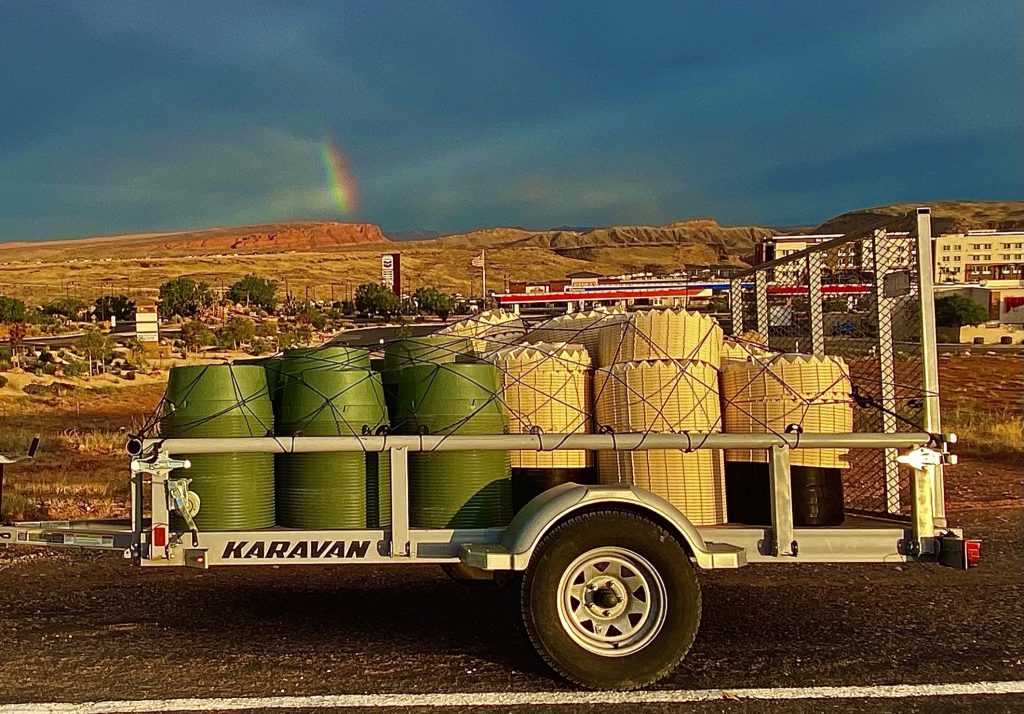Enhancing Southeast Idaho’s Wildlife Habitat through Fish and Game Grant
On August 9, the Idaho Fish and Game Commission awarded $100,000 in grants to various organizations spanning the state, with the National Wild Turkey Federation among the recipients.
The NWTF Southeast Idaho Chapter successfully applied for the regional grants, securing $8,000 in funding. This funding will provide essential resources to conservation efforts in the region, including tree watering boxes, support stakes and tree seedlings. These materials are integral to the success of tree-planting endeavors across multiple Wildlife Management Areas within the Southeast region.
Over the past 15 years, NWTF volunteers have played a vital role in propagating and planting approximately 10,000 trees across 18 projects in the Southeast Idaho region. These tree plantings have contributed significantly to enhancing the habitat for a diverse array of wildlife species.
However, the most recent winter has been exceptionally challenging for all wildlife in Southeast Idaho. The persistent severe winter conditions have resulted in damage to many of the previous plantings that have occurred on the WMAs as well as the supply of young trees necessary for future plantings.
For many years now, Joe Foster, NWTF Idaho State Chapter president, has been propagating a wide variety of trees and shrubs on his property for use on WMAs across the state to improve wildlife habitat. These seedlings are planted and nurtured for several years under the care of nursery conditions until they are ready to grow in the wild. However, extreme cold temperatures can be deadly these young seedlings.
This project is designed to not only replace dead or dying trees in past planting locations but also includes a noteworthy addition: the installation of 190 water boxes specifically dedicated to the Sterling Wildlife Management Area.
Introducing "in-field" water capture boxes is crucial to improving the success of tree plantings in arid environments, as they provide a reliable and maintenance-free source of irrigation. This innovative approach aims to bolster the vitality of these areas, benefiting both the habitat and the wildlife that depend on it.

The project will also include the planting of 400 additional trees, equipped with tree watering boxes and support stakes within IDFG wildlife management areas. These areas include the Portneuf WMA, Sterling WMA, Georgetown WMA and Blackfoot River WMA.
“Collaborating closely with the IDFG wildlife division staff, this project is designed to not only re-establish but also significantly enhance the wildlife habitat within these areas,” said Collin Smith, NWTF district Biologist. “The focus is on realizing future benefits by carefully selecting and planting trees where they can thrive.”
The remarkable aspect of this initiative is the enduring impact it will have. The benefits derived from these tree plantings are expected extend over the long term, surpassing 50 years.
While a primary focus is on wild turkeys, efforts will also benefit a wide range of wildlife, including deer, moose, upland game birds and various non-game species. Improvements provide improved security cover, bedding areas, nesting sites, thermal protection and forage sites. As the trees mature, they'll serve as roosting sites for wild turkeys and perching spots for other bird species. These habitat enhancements will expand walk-in turkey hunting opportunities for sportsmen and women as well.
NWTF volunteers will provide the required labor and expenses to aid IDFG staff in planting trees, installing water boxes and support stakes across southeast Idaho. The selected tree species for planting encompass Douglas fir, ponderosa pine, juniper, native plum, and burgamble oak.
“The volunteers, benefiting from their accumulated experience through prior planting projects, have significantly enhanced the probability of executing proper planting procedures, increasing the project's overall success,” Foster said. “It's noteworthy that many of these volunteers are actively engaged in the Idaho Master Naturalist Program, and are enthusiastic about contributing their skills and efforts to carry out this important work.”
The tree planting activities are scheduled for both the fall and spring planting seasons, spread over the next 1 ½ years, and is expected to complete in the fall of 2024.
